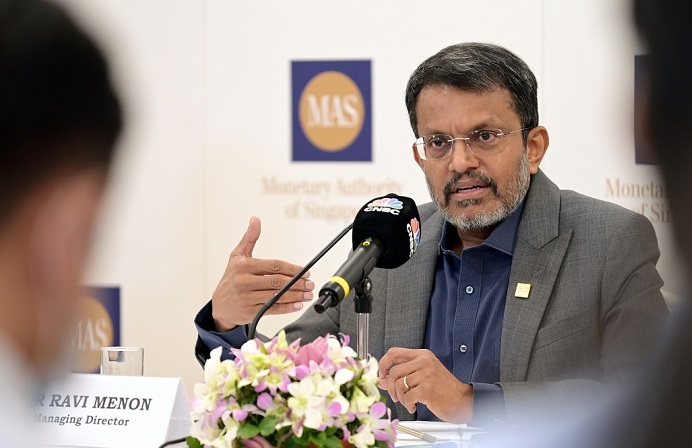
The incumbent managing director of Singapore’s chief financial regulator, the Monetary Authority of Singapore (MAS), has announced his retirement from the organisation and Singapore’s public service.
Ravi Menon, who has served as MAS chief for more than a decade, will retire from his duties at the regulator effective 1 January 2024.
Current permanent secretary (development) at the Ministry of Manpower (MOM) and former manager across several MAS functions, Chia Der Jiun, has been appointed as Menon’s successor and board director from 1 January.
In his past roles at the MAS, Chia, the regulator has noted, has contributed significantly to the Singaporean financial services sector, in the forms of restructuring the banking sector, reviewing asset allocation policies and enhancing national payment systems.
He was also seconded for two years to the International Monetary Fund (IMF) as executive director for Southeast Asia.
Menon has spent 29 years at the MAS, having held the position of managing director since 2011.
In May this year he was re-appointed for another two-year term.
“As managing director, Mr Menon has been the driving force behind MAS’ initiatives to make Singapore’s financial sector more resilient, innovative, and purposeful,” a statement from the central bank said.
“Mr Menon led the reform of Singapore’s financial regulatory framework following the global financial crisis, strengthened the enforcement regime against money laundering and market misconduct, and developed MAS’ macroprudential policies to ensure a sustainable property market.
The regulator added: “Mr Menon played a pivotal role in positioning Singapore as a leading FinTech hub.
“He steered the growth of Singapore’s electronic payment ecosystem, initiated a regulatory sandbox to promote experimentation, and oversaw the introduction of digital banking licences.”
During his time at MAS, Menon worked closely with industry stakeholders to develop and implement strategies and programs that improved financial skills and careers, strengthened the sector’s resilience to climate risks, established a green finance hub, introduced Covid-19 response measures that protected the sector and spearheaded schemes to accelerate digitalisation.
